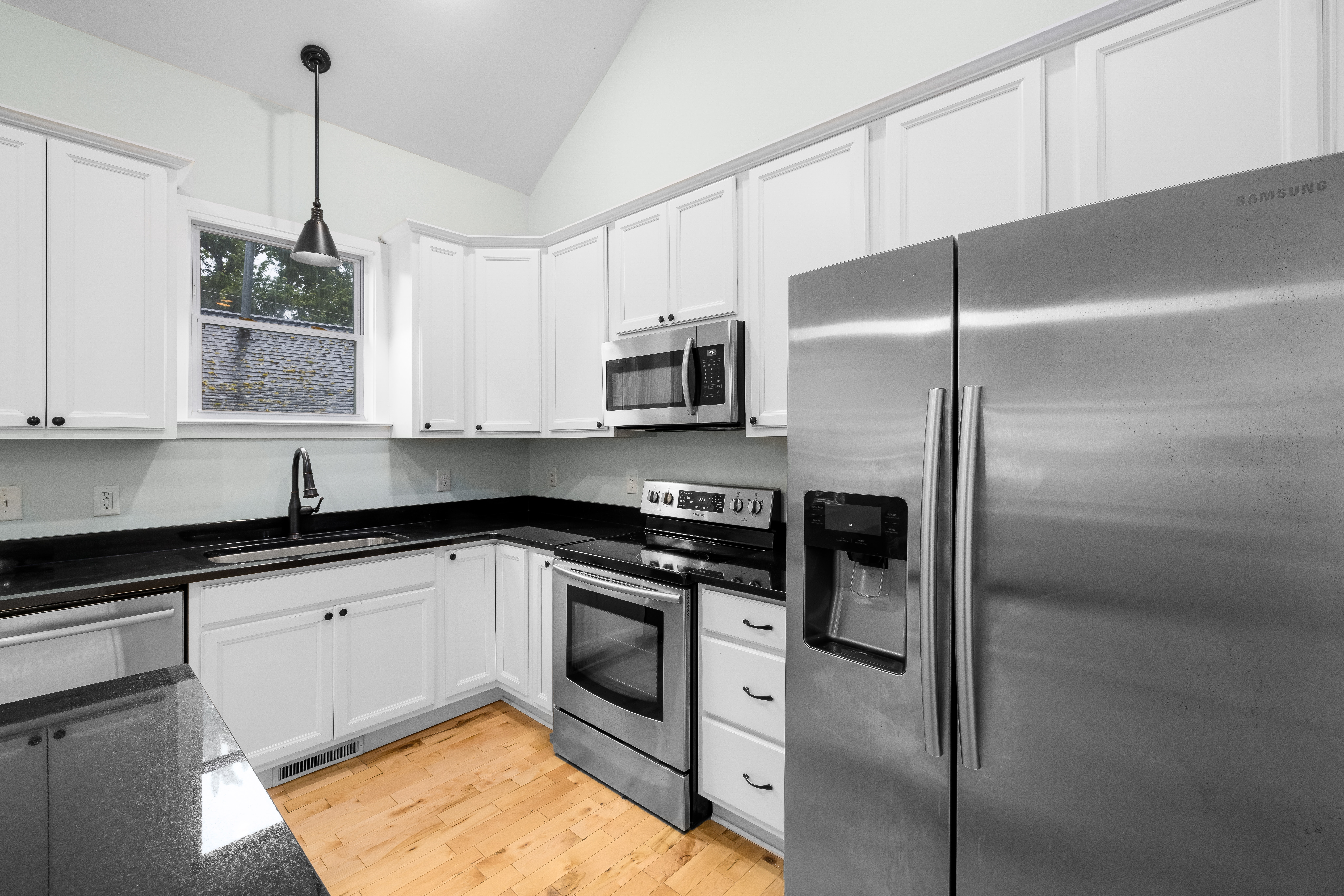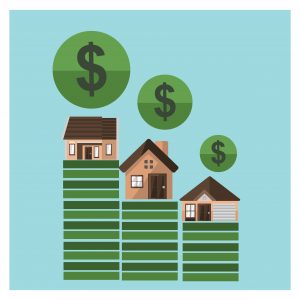by Conrad Meertins | Aug 28, 2023 | Uncategorized

Welcome to the fascinating world of real estate! Ever wondered how a property’s worth is decided? There’s a method called the Sales Comparison Approach (SCA). This short article will help you understand what it is and how it’s used. Plus, we’ll discuss the steps involved, and its advantages and limitations. So, let’s jump in!

Understanding the Sales Comparison Approach
The Sales Comparison Approach is a way to determine a property’s value. It’s widely used in real estate because it compares the property to similar ones that have recently been sold. This way, the value is based on what buyers are actually willing to pay.

Steps Involved in the Sales Comparison Approach
Now, how does it work? A major key for the appraiser is to determine the pool of similar properties, called “comparables.” In an ideal world, these homes would have sold within the past 3 to 6 months. However, appraisers can go back in time as far as necessary. After selecting 3 to 6 comparables to serve as representatives, they make adjustments where appropriate.
For example, if your house has a new roof but the comparable doesn’t, they’ll add the “contributory value” of a new roof to the comparable’s price. Contributory value is essentially “how much more the average person will pay because of that feature.” By making this adjustment to the comparable sale, the price reflects what it would be if it had a new roof, like your house!

The Use of the Sales Comparison Approach in Various Property Types
SCA can be used for different types of properties. Whether it’s a condo in the city, a house in the suburbs, or a farmhouse in the country, SCA can be helpful. However, each type of property has its own considerations. For instance, a farmhouse’s value might be influenced more by its land size than a city condo, which has no land.

Advantages and Limitations of the Sales Comparison Approach
The best thing about SCA is that it’s based on real sales, giving a realistic value. But it’s not perfect. Sometimes it’s hard to find comparables, and no two properties are the same, so making adjustments isn’t always straightforward. But don’t worry! Skilled appraisers know how to handle these challenges.
Conclusion
So, there you have it! The Sales Comparison Approach is a key part of real estate appraisals. It’s useful but also has its challenges. By understanding it, you’re now better equipped to deal with property valuations. For more insights into real estate, consider joining our Facebook group. It’s a great place to learn and ask questions. Happy appraising!
by Conrad Meertins | Oct 12, 2022 | Uncategorized

Everyone wants a “turn-key” home these days. That means once they turn the key and open the front door, the house is “ready to use” with no repairs needed.
If you’re thinking of selling your parent’s home, you may not be able to make it turn-key. But no doubt you would like to make it more marketable. I say, go for it! I am an advocate of getting as much as you can for your home. One thing you don’t want to do is spend money on the wrong updates. Why is that?
Your goal is to update your home to get a higher appraised value. But sometimes the updates you make can have the opposite effect. Here are the three worst renovations:
1) High-end appliances or adding more living area



Such updates may not increase the value of your home if these are uncommon in your neighborhood.
Buyers aren’t going to spend thousands of dollars more for “bigger and better” features if the average sale price for homes in the area is lower.
2) Specialized /personalized features

Over-personalized improvements may not appeal to potential buyers. You may be a UK fan, but the UK tiling on the bathroom floor may not appeal to the UofL buyer that is considering your home. Try to keep the updates neutral since buyers won’t pay more for homes with several features they will need to remove or replace.
3) DIY projects

When it comes to remodels or repairs, it is best to invest in hiring a professional to do the job. Unless, of course, you have the home improvement skills to pay the bills.
There’s no doubt that do-it-yourself improvements can save you money initially. But, there is a risk of compromising the condition of the project, and in turn, decreasing the home value.
Key takeaways…
Some key takeaways when thinking of updating your parent’s home are:
1. consider your market – is the update you are considering common and/or in-demand in your area?
2. keep home improvements consistent with the rest of the home, and the rest of the neighborhood.
3. use a professional to do the work, this way the quality of the update is not compromised.
Also, It is also a good idea to consult a real estate appraiser to determine which improvements will get you the best value for your home.
To learn what your home would be worth after making certain repairs, give me a call, I’d be happy to help.
by Conrad Meertins | Jan 23, 2020 | Uncategorized

When you get your appraisal report it may sometimes be twenty to thirty pages in length. This may be overwhelming to digest. This article will let you know what are some important elements of your report.
Most appraisal reports will consist of the same main parts: basic property information, comparable sales information, and value conclusion.
Here is a guide where how these three items are often laid out in the appraisal report:
A Description of the property (land and the improvements on the land)

The beginning of the report will typically contain the property’s basic information. The address, property tax, the type of property, the size of the land, any updated or renovations done, and other general information. It is important that the information in this part is all correct to ensure that the appraiser can find and compare it to similar homes to come up with an accurate value.
Pro Tip – If you are the homeowner ordering the appraiser to help you determine the market value in order to sell the property, then this information is already known. Therefore, this section may not need to be as extensive.
Comparables

The next prominent section of the appraisal is where you can find the homes that the appraiser used to compare to your property, and their corresponding sales prices. Here you may also notice adjustments in the comparables values. These are made in order to estimate the market value of your home. The appraiser should be able to show the bases for these adjustments.
Value

At the bottom of the page featuring comparable sales is one of the most important parts of the appraisal for you, the client, your home’s value. To better understand HOW the appraiser arrived at this number, look for the reconciliation or the summary conclusion section.
This is by no means an exhaustive list of what is included in an appraisal report. However, now that you have an idea of three important sections (property description, comparables analysis and value conclusion/reconciliation, keep in mind that you should carefully read it and check if there are any errors, missing information, and whether or not you feel that the final value is correctly justified. A good appraiser will not be concerned if you call to ask a question or two about his conclusions.
Download the eBook to see where you can find these important sections in the appraisal report.
by Conrad Meertins | Dec 16, 2019 | Uncategorized

You know you need an appraiser to value your home, but when you look online, there are so many to choose from! Sure price may be a factor, but simply going for the cheapest appraiser may likely lead to disaster! But what else do you ask the appraiser when you give him or her a call????
This blog post will guide you through that process….
It is important to choose the right appraiser to value your property because it will save you a lot of time, money, and energy. In order to determine the best appraiser for you home, here are some categories of questions you can ask before you hire:
‘Basic information’ Questions
You should get to know the appraiser you are going to work with. You may ask if they work alone or with a company, if they work full time as an appraiser, how many appraisals they usually do in a day, or a week. Also get their contact information and when is a good time, you can reach them. This can make communication easier especially when you might need to ask questions or provide information about anything concerning the appraisal.
Licensure Questions
Ask if they are licensed or certified, and if they have other professional designations or are continuing any education – This would let you know if the appraiser is qualified to do the job and also what types of properties they are permitted to appraise. Certified appraisers will have completed more basic education and will generally have a greater depth of experience compared to licensed appraisers.
 Experience Questions
Experience Questions
How long have they been appraising property? Are there specific types of properties they appraise? – The appraiser’s experience and knowledge in the field are very important things to consider. It is recommended that the appraiser you hire has at least 5 years of experience for simple properties and at least 10 years for more complex ones. You would also want to know their experience in appraising homes similar to yours, especially if your home has some special features.
Time-frame Questions
Ask when the report will be ready – This will ensure when you can expect the report to be ready. It is important to establish a date to avoid delays to the whole process of buying or selling a home.
And perhaps the all time favorite…
 Money Questions
Money Questions
Ask what is their fee and the basis of what they charge – it is advised that you do not hire an appraiser that charges a percentage of the appraised value. This indicates a bias in the home’s value. Appraisal fees vary depending on your location so researching the usual cost for your area and type of home will help give you an idea of the range.
It goes without saying that you need to be able to know and trust the professional who will have access to your home and accurately determine its value. Being ready with questions of the main things you need to know about the appraiser will ultimately help you to select the right person for the Job.
by Conrad Meertins | Sep 3, 2019 | Uncategorized

You just took a sledge hammer to the wall of your tiny kitchen which has been confining you for years!!! AHH! The feeling of liberation! Your kitchen expansion project is underway! Wait a second…you need some cash to finish the project, so you decide to refinance. But does the project need to be complete before the bank will lend the money?
Unfortunately, I can’t answer for the bank. However, I can let you know some appraisal terms that come into play. “as-is” value and “subject to” value.
What do “as-is” and “subject-to” values mean?
• “As-is” value – An estimate of the market value of a home in its current condition, use, and zoning.
• “Subject to” value – This is what the value will be whenever certain conditions are met. It is determined by taking into consideration the proposed improvements.
If the as-is value (broken wall and all!) is acceptable to the bank, they may lend! However, there is one caveat…The appraisal report must identify and describe physical deficiencies that could affect a property’s safety, soundness, or structural integrity. If the appraiser has identified any of these deficiencies, the property must be appraised “subject to” completion of the specific repairs or alterations.
Two major take aways: 1) how much has your home value dipped considering your property in its current stage of renovation and 2) does the current stage of renovation represent a health and safety risk!
by Conrad Meertins | Aug 15, 2019 | Uncategorized

In the context of selling your home or buying a home, what exactly is market value? This sounds like a really simple question. Someone might respond, “market value is the price that someone is willing to pay for a home”. However, there are other factors that must be taken into consideration.
Here is a definition from the Fannie Mae Selling Guide (This definition is also stated in most appraisal reports related to mortgages)
Definition
Market value is the most probable price that a property should bring in a competitive and open market under all conditions requisite to a fair sale, the buyer and seller, each acting prudently, knowledgeably and assuming the price is not affected by undue stimulus.
Implicit in this definition is the consummation of a sale as of a specified date and the passing of title from seller to buyer under conditions whereby:
- buyer and seller are typically motivated; both parties are well informed or well advised;
- each acting in what he or she considers his/her own best interest;
- a reasonable time is allowed for exposure in the open market;
- payment is made in terms of cash in U.S. dollars or in terms of financial arrangements comparable thereto;
- the price represents the normal consideration for the property sold unaffected by special or creative financing or sales concessions granted by anyone associated with the sale.
One main take away is that for it to be said that a home was sold at “market value” five conditions have to be met.
Real world application of this point
If a home’s prior sale price was not market value then an appraiser should not use that prior sale as a comparable.

















